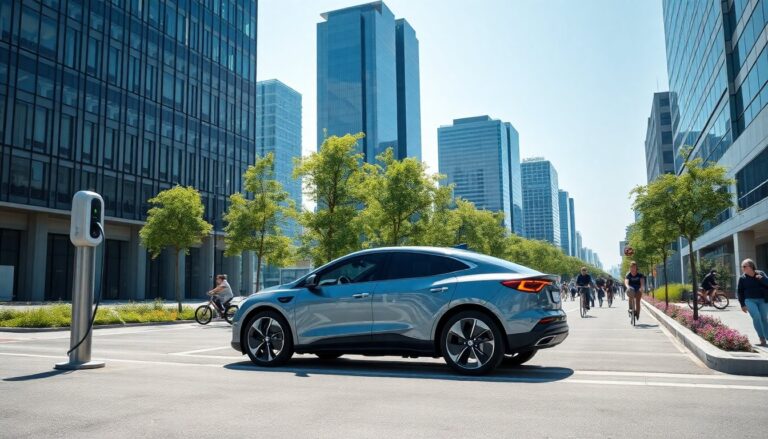Argomenti trattati
The automotive industry is experiencing a transformative evolution driven by technological advancements. As we enter a new era, it is crucial to examine the trends and innovations reshaping our understanding of transportation. From electric vehicles to autonomous driving, the future of automotive technology encompasses not only improved performance but also sustainability and enhanced user experiences.
The rise of electric vehicles
One of the most significant trends in the automotive sector is the rise of electric vehicles (EVs). As concerns about climate change and fossil fuel dependency grow, consumers are increasingly turning to EVs as a cleaner alternative. Major manufacturers such as Tesla, Nissan, and Chevrolet have made substantial investments in electric technology, leading to a surge in EV popularity.
Market growth and consumer acceptance
The market for EVs has expanded rapidly. Recent studies indicate that global EV sales are projected to surpass 10 million units annually by 2025. This growth is driven not only by environmental concerns but also by advancements in battery technology that enhance range and performance. Furthermore, government incentives and subsidies are encouraging consumers to make the switch, paving the way for a more sustainable future.
Autonomous driving technology
In parallel with electric vehicles, autonomous driving technology is gaining significant attention. The concept of self-driving cars has evolved from science fiction to reality, with companies like Waymo and Uber at the forefront. These vehicles employ a combination of sensors, cameras, and artificial intelligence to navigate roads with minimal human intervention.
Safety and regulatory challenges
While the potential of autonomous vehicles (AVs) is promising, numerous challenges must be addressed. Safety remains a critical concern, as incidents involving self-driving cars have raised questions about their reliability. Additionally, regulatory frameworks are still in development. Governments worldwide are working to establish guidelines for testing and deploying AVs, ensuring their safety for public use.
Connected car technology
Another notable trend is the emergence of connected car technology. Modern vehicles are not merely modes of transportation; they are becoming integral components of the Internet of Things (IoT). Equipped with internet connectivity, cars can communicate with each other and with infrastructure, creating a more efficient and safer driving environment.
Benefits of connectivity
Connected cars offer numerous advantages, including improved traffic management and enhanced safety features. For instance, real-time data sharing can help prevent accidents by alerting drivers to potential hazards. Additionally, features such as remote diagnostics facilitate proactive vehicle maintenance, reducing the likelihood of breakdowns.
The impact of sustainability
Sustainability is central to the automotive industry’s transformation. Manufacturers are increasingly prioritizing the development of eco-friendly materials and sustainable manufacturing processes. From biodegradable plastics to recycled materials, the aim is to reduce the carbon footprint associated with vehicle production.
Consumer demand for sustainability
Growing consumer awareness regarding environmental issues is driving demand for greener options. Many buyers are now considering the environmental impact of their purchases, leading to increased interest in hybrid and fully electric models. This shift not only benefits the planet but also encourages manufacturers to innovate and refine their sustainability practices.
The road ahead
The future of the automotive industry is undeniably exciting, with trends such as electric vehicles, autonomous driving, and connected technology paving the way for unprecedented changes. As innovation continues to propel the sector forward, collaboration among manufacturers, technology companies, and regulators will be essential. Together, they can ensure that future advancements not only enhance performance but also prioritize safety and sustainability.
One of the most significant trends in the automotive sector is the rise of electric vehicles (EVs). As concerns about climate change and fossil fuel dependency grow, consumers are increasingly turning to EVs as a cleaner alternative. Major manufacturers such as Tesla, Nissan, and Chevrolet have made substantial investments in electric technology, leading to a surge in EV popularity.0

